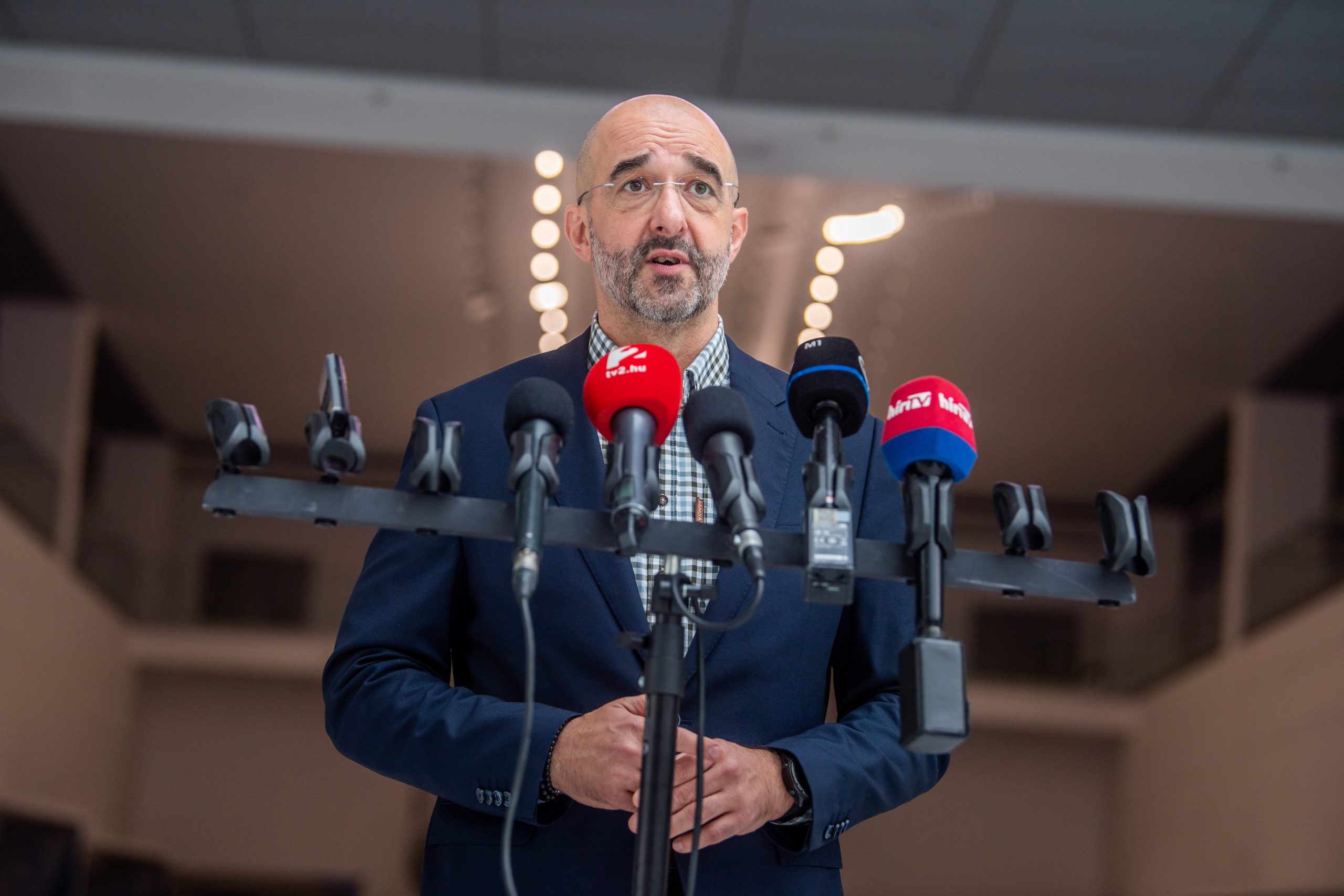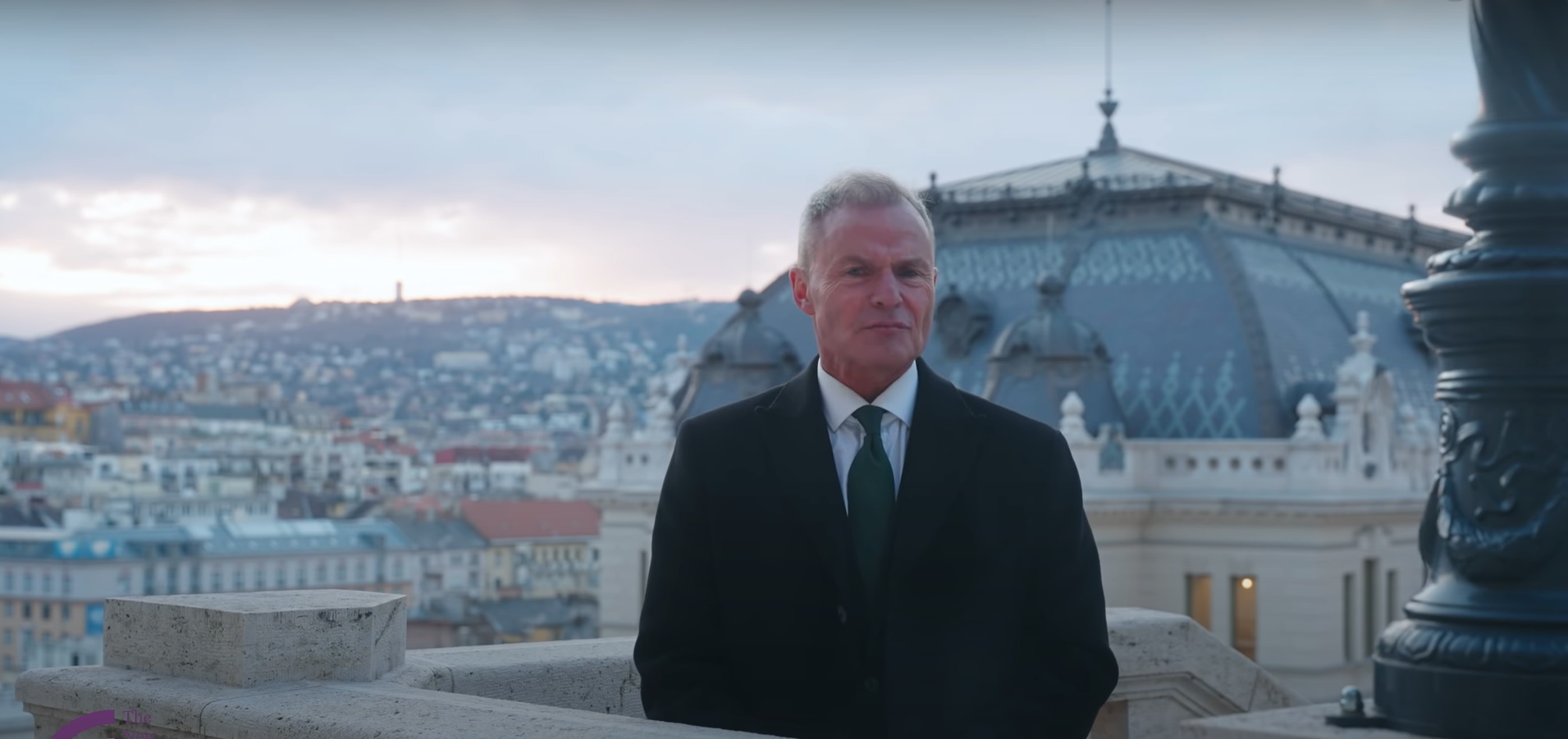
Zoltán Kovács reacted to an op-ed criticizing the Fidesz government, and its "antisemitic" anti-Soros campaign.Continue reading

The British New Culture Forum, under the leadership of journalist Peter Whittle, published a documentary about Hungary on their YouTube channel, covering topics such as the demonization of Hungarian Prime Minister Viktor Orbán, migration, and Hungarian family policies. The New Culture Forum only interviewed pro-government politicians and intellectuals close to the governing parties.
Peter Whittle, founder and director of the forum, is a British politician, author, journalist, and broadcaster who served as a Member of the London Assembly from 2016 to 2021.
“Orbán and Fidesz, Hungary’s ruling party, are often accused of building an authoritarian state,” says the presenter, Peter Whittle. This, however, “overstates both the extent of their political control and their ideological ambitions,” Whittle continues. He also says that “if we want to take a cursory look at western media, one would be forgiven for thinking that Viktor Orbán was head of an authoritarian regime.”
The communist regime was an authoritarian system that Fidesz did not agree with. Looking back, Zsolt Németh, economist and politician of Fidesz, says:
In 1988 when we established Fidesz, we had communism. […] At that time, it was a protest against communism.”
“I don’t think the Hungarian government, for example, has the slightest interest in whether you go to church on Sunday and if so which church you go to,” says President of the Danube Institute in Budapest, John O’Sullivan. However, during the communist period, the government “did care.” They did “constantly monitor the opinions of their subjects to make sure that they fit the prescribed communist point of view. That’s why people here don’t like that. They remember it. It’s easier for them to connect the kind of instructions that are issued by Brussels and by modern governments in countries like France and Germany to their citizens, or easy for them to connect that with the kind of oppressive government that they had under the communists. Because communism wasn’t simply oppression- it was oppression plus preaching and you had to affirm things that you knew to be false because they were the doctrine of the ruling party. And we’re beginning to find that in the woke revolution where people get fired from jobs because they don’t have the correct view on something.”
Demonization has more to do with Viktor Orbán rather than Hungary itself,”
says journalist and Head of Literature at the Mathias Corvinus Collegium (MCC) Tibor Fischer. “Essentially, a lot of it is quite simply down to political spite. Orbán is a right-wing prime minister. This goes back a long way, even to the mid-1990s: the former communists started spreading the rumor, they went to people in Brussels and Washington and sort of whispered in their ears, ‘unfortunately, he’s far-right, he’s an anti-semite.’ None of this is true but unfortunately, the European left seems to love the idea of having a sort of fascist to castigate and vilify.”
Essentially, it was the European left wanting to have a go at him [Orbán] and they used the machinery of the EU to do this, so that was the start of it. Now I think some of Orbán’s policies may be driven partly to annoy people in the EU as a sort of riposte to that,”
Fisher added, also saying that when Fidesz was established, Orbán
Risked his neck for democracy.”
When Fidesz was created, in the communist times, “we didn’t even dream about a free election, and now we are accused that these elections are not going to be free. You know it is going to be free because we know what the value of freedom is,” says Németh.
The 2022 general elections are going to take place this weekend in Hungary, on April 3. Fischer believes that both Fidesz and the opposition have a chance of winning but, he expects Orbán to win by a slight majority.
He thinks that if Orbán wins the elections, “the international left will convulse in rage because they’ll think it was fixed. Whereas no one has actually questioned the election process. The observers of the OSCE came along last time and they had a few minor complaints about the fact that Hungarian politics is a sort of boys club, which is true, but that was it. They are coming this time, and now, in fact, the EU wants to send lots more people here to observe the elections and I think on their part it’s a mistake, because their observers will find that it’s all run properly, so when Orbán wins, if he does, they can’t say it’s fixed.”
“The accusation is often that Hungary is somehow anti-immigrant, whereas as we’ve seen with the crisis in Ukraine, they are more than willing to take genuine refugees from a neighboring country. The distinction is between legal and illegal of genuine asylum and economic migration,” Whittle introduces the topic. He then goes on to talk about the effectiveness of the way Hungary dealt with the issue in 2015, and also the fence built on the border with Serbia and Croatia.
O’Sullivan thinks that while European leaders criticized Orbán because of his migration policy, Orbán was simply following EU rules, and eventually “of course, they all adopted the policy that he had advocated, including people who strongly denounced him.”
“In 2018 Hungary’s government introduced legislation known as the Stop Soros laws named after the Hungarian-American billionaire George Soros whose pro-migrant and open-border stance facilitated by his Open Society Foundation is well documented,” Whittle says. According to him, this was to stop “promoting and supporting illegal migration” and to stop “providing any kind of assistance to undocumented immigrants.” Whittle brings up that “the European Court of Justice ruled that Hungary had violated EU law by restricting access to asylum and criminalizing assistance to asylum seekers.”
Zoltán Kovács, Secretary of State for Public Diplomacy and Relations, says that there is nothing wrong with migration, if, for example, the population needs to be refreshed or it is needed for labor purposes. However, he says, “We claim and we believe that nobody can decide instead of you, so it’s only the Hungarians, the Hungarian government who can decide whether we would like to follow that path or we would like to give a different direction.” Kovács also says that the EU mixes up “asylum seekers who are fleeing for their lives, fleeing for political, war or any other reason. […] They mix them up with economic migrants who only come to Europe and to come to different parts of the western world hoping for a better life in the future. Irregulated migration is dangerous because it’s […] putting big pressure on societies.”
“In 1981 Hungary’s population peaked at 10.7 million, at the beginning of this year it was estimated to be 9.73 million. Every year for 40 years, more Hungarians have died than were born,” Whittle says, “But rather than looking to immigration to solve this problem, the Hungarian government decided to incentivize the growth of families from within.”
Therefore, “Hungary has pursued a pro-family agenda which is reaping a bountiful harvest,” as he put it. Whittle adds that “In the 2021 budget, 7.52 billion euros were allocated to family support, or 5.2 percent of GDP. In 2020 there were 92,233 births, which was 3.4 up from 2019. A direct consequence of the pro-family legislation passed in that year as well as a 50 increase in the number of marriages. This resurrection of the traditional family has been held by the government’s proactive pro-family policies such as the grant of around £26,000 (30,750 euros) for married couples who have at least three children. Orbán has said he wants the fertility rate to hit 2.1 by 2030, the figure at which the population can replace itself. But it is a tall order and no country in Europe is anywhere near this.”
O’Sullivan thinks and agrees that the government makes it clear, however, that “they make it plain that reversing a long time downward trend of fertility is something that is going to take more than one generation, and we have to acknowledge and realize that.”
Parliamentary and strategic State Secretary Balázs Orbán says that the two approaches which Western civilization can choose are the liberal approach and the conservative approach.
He thinks that the liberal approach means that “the values which we were taking seriously in the last decades, those values are outdated and they block us. And the reason why we are not finding the proper answer is that we are stuck with these values, these traditional, old types of values like nation-states, traditional families, traditional way of the market, traditional biological roles, etc.” Those who believe in this, according to Orbán, think that “we have to reinvent everything we have to find a new value system, we have to find something which is not linked to the past and if we find that and if the society, the economy the whole political structure is changing toward that direction then we will have the answer, and we will emerge again.”
The conservative approach, he thinks, is about “the values which made us successful, Christianity, nationhood, traditional families with children, ethical, moral values based on Judeo-Christian heritage, the traditional concept of sex, gender, and education, the traditional concept of the free market and the involvement of the state. Our problem is that we are turning away from these values, so what should be done is to turn back to these values and […] to use them also in 21st-century circumstances.”
The full video can be watched below:
Featured image: Peter Whittle/screen capture from the YouTube video above